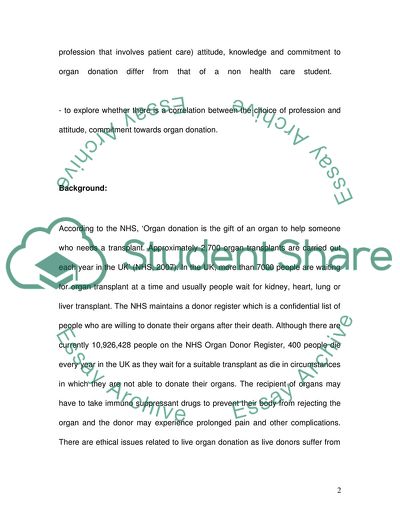Cite this document
(Organ Donation Literature review Example | Topics and Well Written Essays - 2000 words, n.d.)
Organ Donation Literature review Example | Topics and Well Written Essays - 2000 words. Retrieved from https://studentshare.org/health-sciences-medicine/1710710-organ-donation-a-literature-review-to-compare-the-attitudes-knowledge-and-commitment-of-university-health-care-students-with-non-health-care-students
Organ Donation Literature review Example | Topics and Well Written Essays - 2000 words. Retrieved from https://studentshare.org/health-sciences-medicine/1710710-organ-donation-a-literature-review-to-compare-the-attitudes-knowledge-and-commitment-of-university-health-care-students-with-non-health-care-students
(Organ Donation Literature Review Example | Topics and Well Written Essays - 2000 Words)
Organ Donation Literature Review Example | Topics and Well Written Essays - 2000 Words. https://studentshare.org/health-sciences-medicine/1710710-organ-donation-a-literature-review-to-compare-the-attitudes-knowledge-and-commitment-of-university-health-care-students-with-non-health-care-students.
Organ Donation Literature Review Example | Topics and Well Written Essays - 2000 Words. https://studentshare.org/health-sciences-medicine/1710710-organ-donation-a-literature-review-to-compare-the-attitudes-knowledge-and-commitment-of-university-health-care-students-with-non-health-care-students.
“Organ Donation Literature Review Example | Topics and Well Written Essays - 2000 Words”. https://studentshare.org/health-sciences-medicine/1710710-organ-donation-a-literature-review-to-compare-the-attitudes-knowledge-and-commitment-of-university-health-care-students-with-non-health-care-students.


